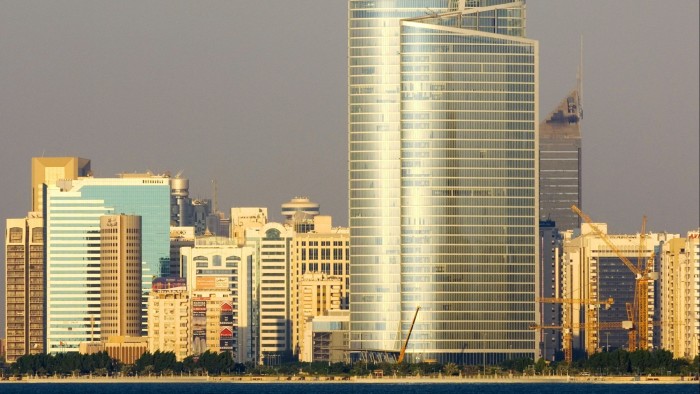Unlock the Editor’s Digest for free
Roula Khalaf, Editor of the FT, selects her favourite stories in this weekly newsletter.
Abu Dhabi’s sovereign wealth fund is buying a large stake in data analytics software company Qlik at a valuation of about $10bn, as appetite grows among Middle Eastern investors for businesses owned by the world’s biggest buyout groups.
The Abu Dhabi Investment Authority (Adia), the Emirati sovereign wealth fund, will invest about $1bn into Qlik as part of a deal that will see its private equity owner Thoma Bravo sell on the US based software group among its other funds, according to three people briefed on the matter. Adia’s investment will be announced later on Monday.
Thoma Bravo, a specialist software buyout group, acquired Qlik in 2016 for about $3bn. The fund that bought Qlik will now sell its stake to Adia, a group of other large pensions and sovereign wealth funds, and two newer Thoma Bravo funds for a gain of about three times its investment, the sources said.
The deal adds to a string of large financings done by Adia and many other Middle Eastern funds in recent years as private equity investors have slowed the pace of deals because of higher interest rates, and struggled to exit older investments. Funds like Adia have become important sources of equity financing for new takeovers and acquired stakes in companies such as Qlik, where PE firms are seeking liquidity for their investors.
Adia recently backed Advent International’s purchase of a stake in US wealth manager Fisher Investments, Blackstone’s $14bn acquisition of a climate technology business from engineering giant Emerson, and KKR’s €22bn acquisition of Telecom Italia’s fixed-line phone and internet network.
Adia has also bought into businesses moving between PE firms’ funds. In 2022, it bought a large stake in business services company TMF Group as its private equity owner CVC Capital Partners sold the company from one fund to another. Mubadala, another heavyweight fund in the Middle East, has also spotted an opportunity to make large investments at what it believes are attractive valuations.
Qlik’s recapitalisation drew interest from many new investors after its business accelerated over the past year. Its sales are on track to reach $1.5bn this year and bookings for its software subscriptions are up 30 per cent from the prior year, sources said. In 2022, Thoma Bravo merged Qlik, which is used by companies ranging from Domino’s Pizza to Airbus to analyse performance data, with Talend, a rival software company it acquired in 2021 for $2.4bn.
Investors in the 2021-era Thoma Bravo fund that acquired Talend will make an additional equity investment in Qlik. The group’s 2022-era fund will make a large investment, said the sources. Thoma Bravo will also finance part of Monday’s recapitalisation by raising an additional $1.7bn in debt.
Thoma Bravo had to win approval from its investors for the fund-to-fund deal and was advised by Guggenheim Partners.
The once-niche investment group has become one of the industry’s most active dealmakers after its assets soared from about $20bn a decade ago to $160bn presently. It became a poster child of the deal bubble in 2021 after it invested almost all of a $22.8bn fund in a year when tech valuations hit stratospheric levels, only to then plunge when interest rates soared.
Since 2022, the group has focused on returning cash to its investors and sold down $20bn in investments since September 2023, realising large gains that have appeased many investors.
It sold financial software business Adenza to Nasdaq for $10.5bn, generating billions in gains for its 2021 fund, and closed a handful of other large investments this year. The group is in discussions to sell additional assets and launch public offerings of its portfolio companies as corporations increase their deal appetite and capital markets reopen.
Thoma Bravo has remained an aggressive buyer of software companies, striking large deals for Coupa Software and Darktrace in recent years. It is currently raising its 16th buyout fund, which is targeting about $20bn, according to pension fund documents seen by the Financial Times.
Read the full article here

